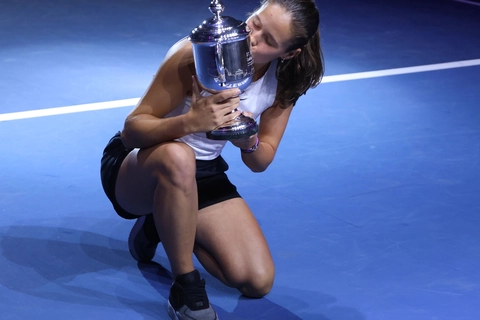Vladimir Putin, running as an independent candidate, is well-known for his extensive tenure in Russian politics, having served as both president and prime minister over the past two decades. His campaign is supported by major political entities, including United Russia and A Just Russia – For Truth. Putin's eligibility for another term comes after constitutional amendments in 2020 reset his term count, allowing him two more potential terms as president.
Everything is thus set for Putin to continue as President of Russia, despite the fact that there are actually several candidates challenging Putin in the upcoming election.
Below we have gathered the individuals who will be on the ballot when the Russian presidential election begins tomorrow, March 15th.

Vladislav Davankov - Photo: Wiki Commons
The opposition includes Vladislav Davankov, 40, from the New People party, a current Deputy Chairman of the State Duma, whose political movement was nominated in December 2023. His campaign has garnered support from the Party of Growth, with which New People announced a merger.

Leonid Slutsky - Photo: Wiki Commons
Leonid Slutsky, 56, leader of the Liberal Democratic Party of Russia and a long-standing member of the State Duma, was nominated by his party in December 2023.

Nikolay Kharitonov - Photo: Wiki Commons
Lastly, Nikolay Kharitonov, 75, from the Communist Party, a seasoned politician with a history in the State Duma since 1993, also makes a bid for the presidency. Kharitonov has run for president before, finishing second in the 2004 election.
The electoral landscape in Russia is such that, despite the appearance of choice, the election is widely viewed as a mechanism to reinforce Putin's legitimacy rather than a competitive democratic process. Putin's management of the political arena, combined with a general apathy towards politics among Russian voters, significantly diminishes the likelihood of a genuine challenge to his rule. This context is critical for understanding the role and potential impact of the opposition candidates in the election.
Putin's strategy appears to focus on maintaining a controlled opposition to assert his policies without substantial resistance, thus presenting himself as the indispensable leader for Russia. His decision to run as an independent, despite full support from his party, underscores a strategic positioning above party politics, leaning on his personal authority and popularity among the electorate. The reputations and political stances of the opposition candidates, in comparison, seem to underscore their roles in a broader narrative that supports Putin's continued presidency, rather than posing serious challenges to his rule.
In the lead-up to the Russian presidential election, there have been several popular candidates who entered the race with a pro-peace stance. Both of these candidates have been staunch opponents of Putin and his handling of both Russia and the war in Ukraine.
Both candidates received significant support, but both were denied the opportunity to run in the election. The reason given was allegedly errors in the paperwork they submitted in their application to run for election.
The presidential election runs from March 15th to 17th, but no significant suspense is expected regarding the outcome.



















